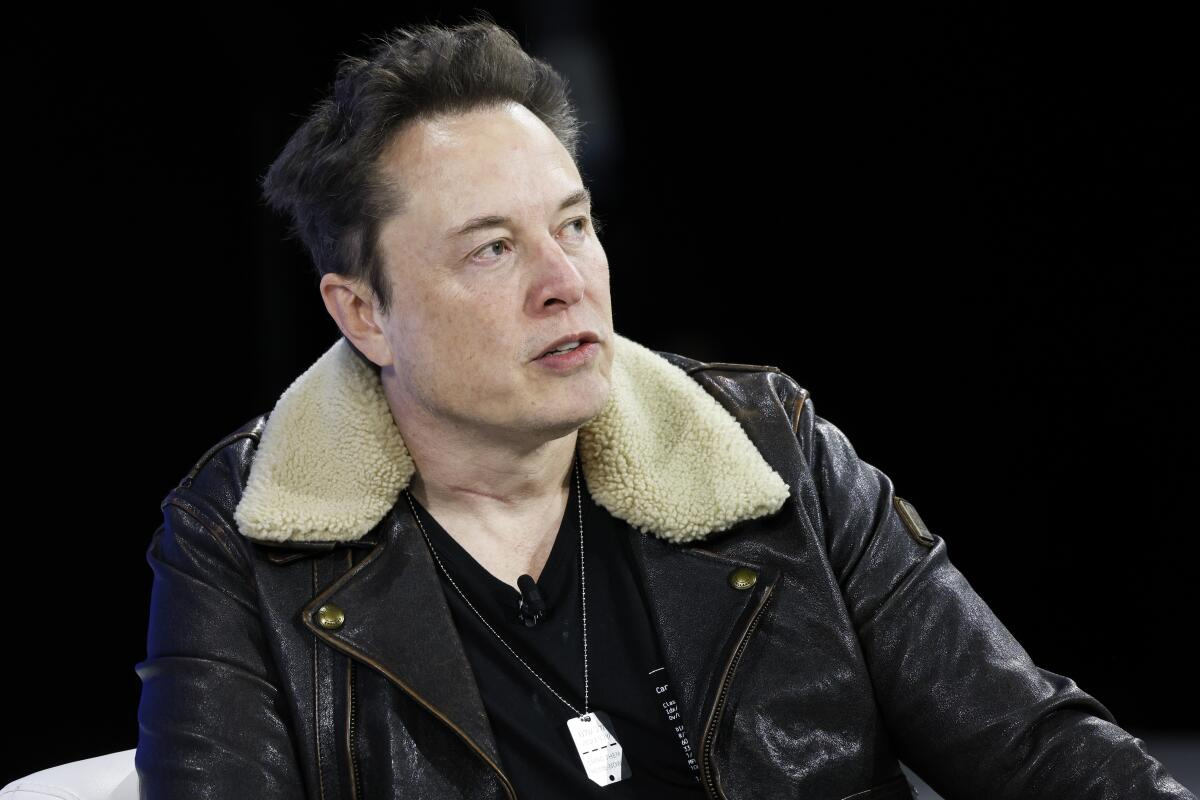Billionaire Bully's Bizarre (A)buses Backfire
Elon Musk made the remark "Go f**k yourself" to advertisers who had stopped advertising on Twitter during an interview at the New York Times Deal Book Summit on November 30, 2023, in New York City.

The Explosive Remark: Musk's “Offensive” Stance at the NYT Summit
Elon Musk, the billionaire owner of Twitter, made headlines with a grossly objectionable remark at the New York Times DealBook Summit on November 29/ 30, 2023, in New York City. Addressing the recent exodus of advertisers from Twitter, Musk brazenly told them to "Go f*ck yourself." This outrageous and unfiltered statement marks a tectonic moment in the ongoing saga of Twitter's controversial management under Musk's leadership.
Triggering Tweet: The Root of the Controversy
The catalyst for the ongoing tumult was Musk's "quote tweet" of a post containing manifestly anti-Semitic content, which he referred to as "The actual truth." This endorsement, emanating from a relatively obscure handle, triggered immediate and widespread condemnation, including from the White House, leading to a substantial number of advertisers retracting their support from Twitter. Major corporations ranging from IBM and Warner Bros to Disney were among those who distanced themselves in response to this controversial tweet.
Musk's Apology and its Aftermath
Elon Musk addressed the controversy on Twitter, stating, "In the past week, numerous false media reports have accused me of antisemitism, which is absolutely untrue. My aim is for the welfare and a prosperous, exciting future for all humanity." Despite this clarification, major advertisers did not swiftly return their support. Following the initial backlash, Musk showed a rare moment of regret regarding his contentious tweet. Yet, this act of contrition did not immediately convince the departed advertisers to resume their campaigns. This episode underscored the complex interplay between free expression and responsible communication on social media platforms but, alas, it did not end with his unqualified apology.
Escalation at the NYT Conference: Musk's Confrontational Stance
Elon Musk's performance at the New York Times Conference was a blend of theatrics and provocation, marked by his fiery statements. In a audacious defiance, Musk directly addressed the advertisers who had withdrawn from Twitter, notably saying, "Go. Fuck. Yourself. Is that clear? I hope it is. Hey, Bob, if you're in the audience," targeting Robert Iger, the CEO of Walt Disney, a prominent company that had pulled its ads. This was followed by Musk's assertion of valuing 'actual goodness' over mere appearances, harshly criticizing those who "look good while doing evil." Musk's unfiltered and defiant response highlighted his contempt for the criticism and backlash he has been facing, indicating a clear rift between his vision for Twitter and the concerns of its corporate partners.
Marketing Insights: A Shift in Twitter's Corporate Relationships
In response to Musk's blunt remarks, marketing experts have voiced their concerns, predicting significant implications for Twitter's corporate relationships. They argue that Musk's abrasive approach towards advertisers, especially his recent comments, could mark the end of many brands' willingness to associate with Twitter. This shift in sentiment is not just about the immediate response but reflects a deeper apprehension about the long-term impact on business relations. The consensus in the marketing community is that Musk's confrontational style could fundamentally alter Twitter's rapport with major advertisers, potentially affecting the platform's standing in the business world. This incident is viewed as a potential watershed moment, indicating a possible change in the dynamics of Twitter's engagement with the global corporate community.
Twitter's Financial Strain and Musk's Unyielding Stance
The recent exodus of advertisers from Twitter, triggered by Elon Musk's endorsement of a contentious tweet and intensified by his subsequent brash statements, has put the platform's financial stability in jeopardy. Advertisers are integral to Twitter's revenue model, and their collective departure is exerting significant pressure on the company's financial framework. Musk, however, remains steadfast in his position, refusing to alter Twitter's policies under external pressure. This rigid stance, though aligned with Musk's advocacy for free speech, threatens to estrange key stakeholders further. The potential repercussions of this approach could be far-reaching, impacting not just Twitter's immediate financial health but also its long-term viability and reputation in the public eye. Musk's unwavering attitude, amidst this financial turbulence, casts a shadow of uncertainty over Twitter's future.
Summing Up: Navigating the Complexities of Social Media and Corporate Ethics
Elon Musk's recent altercations with advertisers, sparked by his endorsement of an antisemitic tweet and exacerbated by his provocative comments, highlight the complex interplay between free speech, social media governance, and corporate ethics. These developments have placed X's Chief Executive Linda Yaccarino in a challenging position, as she now finds herself managing damage control for her boss's controversial remarks more than overseeing the operations of company X. As Twitter navigates this challenging period, the outcomes of these events will be closely monitored by industry experts, users, and corporations worldwide. This incident marks a crucial point in the ongoing discussion about the role of social media in modern society, underscoring the need for a balance between freedom of expression and responsible corporate conduct.
Shakespeare’s Timeless Wisdom
In this context, Elon Musk and leaders alike might find wisdom in the age-old counsel from Shakespeare's "Hamlet." "Give thy thoughts no tongue, Nor any unproportioned thought his act. Be thou familiar, but by no means vulgar," resonates profoundly. This timeless wisdom highlights the importance of measured speech and thoughtful action. Words, once spoken, are like arrows released; they cannot be retracted. Musk, navigating the complex landscape of public communication and corporate leadership, would benefit from heeding Shakespeare's sagacious guidance, reminding us that caution in speech is a virtue that bears relevance even in today's fast-paced digital world.



